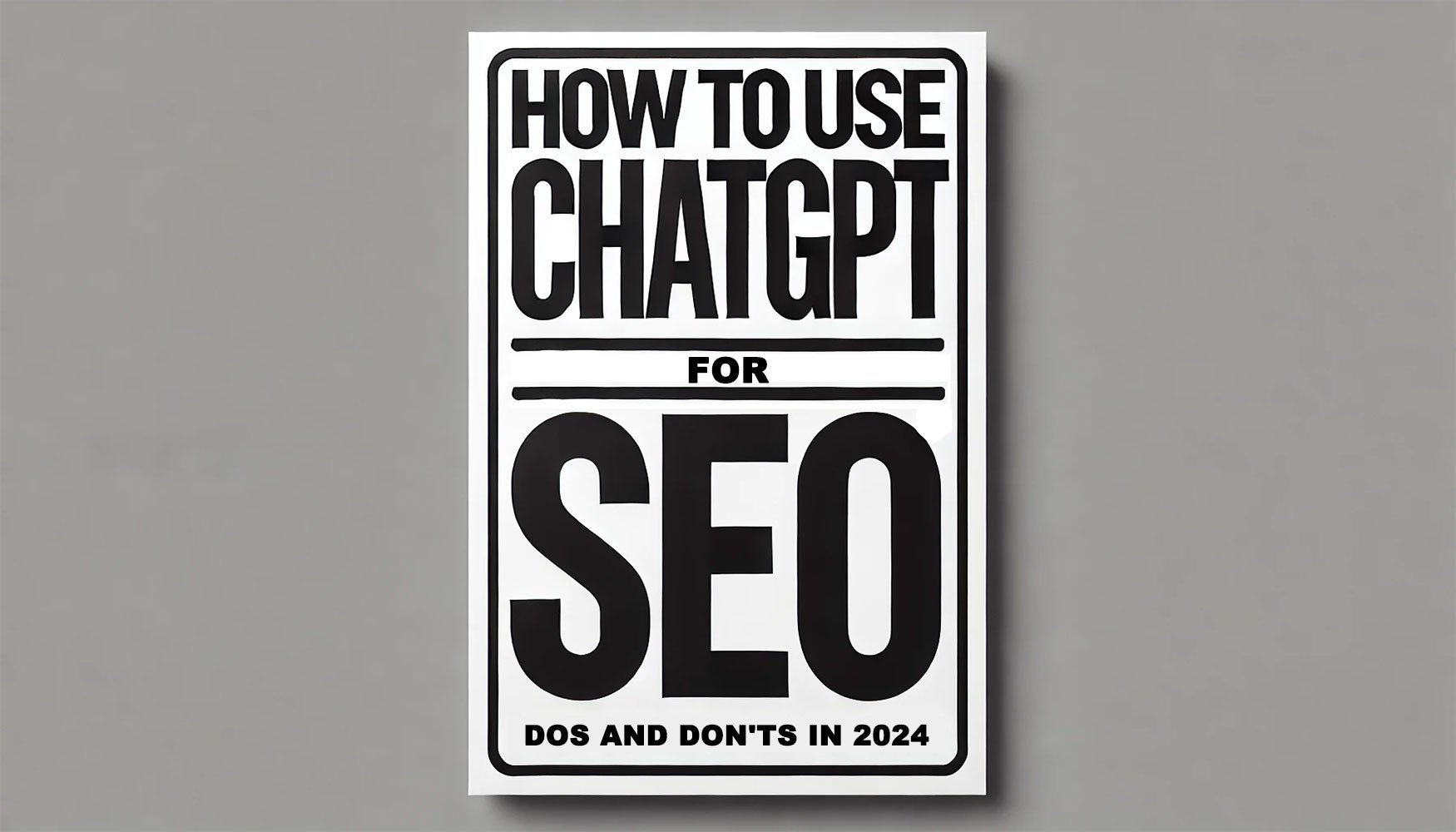Large Language Models (LLMs) can significantly improve your SEO success and at the same time lower your workload. Here are the Dos and Don'ts of using ChatGPT for SEO.

What's the best way to integrate AI into keyword research? How to create engaging content with ChatGPT? And what other ways are there to streamline your SEO with LLMs?
Here are my 2 cents on the topic as an SEO consultant with 15 years experience. The following guide offers some (maybe unexpected) ways to integrate AI into your workflows, while at the same time improving quality and reducing hours.
#1 Trouble Shooting
One often overlooked way to boost your SEO is to use ChatGPT for troubleshooting. It is excellent at helping you fix technical errors – pretty much anything that might affect the Core Vitals in Google Search Console or lower your score on the web.dev checker. Got a weird CLS- or LCP-error affecting your WordPress site? Need to fix someone else's PHP code on a 9-year-old stand-alone page? Talk it through with ChatGPT and you might be surprised how easy some fixes come these days.
I previously used to spend countless hours looking through old threads on different message boards when troubleshooting. Now it's one short chat with my assistant, and I usually find more elegant fixes than before too. To clarify: ChatGPT does not "fix" anything by itself. But it assists you in locating the source of an error and resolving it. Of course, you have to provide the context, goal, and, if applicable, relevant code snippets.
#2 Keyword Research
Keyword research is still a mostly "manual" task – and I use quotation marks here because it has relied on various tools since the beginning of SEO – such as the Google Keyword Planner, list generators, suggestion-tools, etc. In my opinion, AI hasn't really impacted the initial steps and strategies of keyword research yet. However, ChatGPT and other LLMs are good at identifying things you might have overlooked.
When I start to compile my keyword list, I show every column of the list separately to an LLM and ask it to suggest additions. This helps me to identify expressions that I might not have considered. The rest of the process is mostly as before: I use a tool from pre-AI times to automatically compile all possible combinations of my keyword columns. After checking the search volume for all those phrases, I am left with a list of potentially useful keywords. This list I show to an LLM once more, just to double check that I didn't miss anything obvious.
There is a variety of plugins for keyword research with ChatGPT available, but in my experience, they don't contribute much more than the standard version (4o at the time of writing).
#3 Content Writing
Using LLMs for creating written content is a controversial topic – on the one hand, it can be difficult (if not impossible) to identify texts written by AI; on the other hand, AI is often applied so unprofessionally, that it is painfully obvious when a text was written this way. Even worse, we have seen content like that rank much higher than it should for a while. Google tried to address the issue with a core update to its algorithm earlier this year, but there is still lack of consensus among SEO experts as to how successful this was.
In my experience, LLMs can be helpful for phrasing if you provide the right input, structure, context, and ideas. Don't try to have the chatbot come up with the content for the text, it will most likely spit out something bland. Give it clear instructions and it will provide fitting phrasing for almost every context, or at least be able to suggest (sometimes better) alternative formulations that you can use to improve your own writing. Moreover, it's best not to try to make an LLM write an entire landing page at once. Better take it step by step and only ask for single parts/slides/paragraphs/headlines etc. Also: Claude is much better at this than ChatGPT at the moment.
#4 Image Generation
If there is one thing I am certain about regarding Google's search algorithm, then it is that it absolutely loves relevant, unique photos and illustrations. DALL-E is great for generating images that just perfectly fit the content of your site, and it also makes it much easier to create your own infographics.
Please note that DALL-E couldn't create an entire infographic, as it is not meant to accurately visualize data, and it has serious troubles spelling anything correctly that is more than a few characters or words. For such things, we still rely on image editing software. But DALL-E can provide individual elements, icons, frames, etc. and ChatGPT is helpful for bouncing ideas for data visualization.
If I use a photo generated by AI 1:1 on a website, I always adjust the dimensions and filename and delete the metadata – just to be sure I don't make it too easy for bots to identify it as generated content. You're not sure how to delete a file's metadata? Ask ChatGPT! ;)
Conclusion: Increase Quality & Decrease Hours
I'd estimate that AI tools have improved the quality of my work in SEO by at least 20% and slightly reduced my hours at the same time.
Other ways of successfully integrating AI into SEO are definitely on the horizon, and I'd advise all SEO professionals to familiarize themselves with the latest tools and to stay up to date. In my opinion, AI is today approximately where the Internet was in 1998, and the landscape will most likely continue to change rapidly. Hence, what works today might not work tomorrow – bear that in mind when developing your long-term SEO strategies. Stay flexible, keep learning, and be prepared to adapt as AI continue to evolve.
